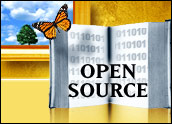
Microsoft’s Office Open Extensible Markup Language (OOXML) document format on Tuesday failed to win enough votes among members of the International Organization for Standardization (ISO) to become an international standard. The vote, however, may not be the final chapter in the politically charged fight over standardized document file formats.
The Foundation for a Free Information Infrastructure (FFII) on Tuesday acknowledged its role in stirring up opposition at ISO. The FFII promotes free competition and open standards.
“Our aim was to catalyze the debate and ensure all necessary comments get tabled and considered,” Andre Rebentisch, an FFII spokesperson, told LinuxInsider.
Veterans of the Fight
This wouldn’t be the first time the FFII made some noise against what it considers proprietary vendor lock-in, and doesn’t appear to be the last. The FFII acknowledges its role in the rejection of the EU (European Union) software patent directive in July 2005.
“We are a major player in EU patent policy and software regulation debates. Our voice has some weight in the community,” said Rebentisch.
Noise Mattered
“We know from the software patent debate that you cannot beat a community,” he said. “Hired guns are always less passionate.”
Microsoft’s effort to have its document format declared an international standard illustrates the importance of standardization.
“Document formats are ubiquitous. Standards are the oil of information society,” Rebentisch said.
“International standard-setting should enable a free competitive market, a level playing field and not promote lock-in for the benefit of a single party,” he said.
That Other Document Format
On the technology side, the recent failure of Open XML to become a global standard was hardly ignored by supporters of the document file format, ODF.
The vote-down is a victory in that “it is an affirmation of our strategy and of our commitment to the best technology,” Louis Suarez-Potts, OpenOffice.org community manager at Sun Microsystems, told LinuxInsider.
OpenOffice is the open source suite of office applications founded by Sun. OpenOffice uses the Open Document Format (ODF) standard, which was developed by a multivendor committee. The committee’s goal was toward interoperability.
ISO-Approved Format
“The ODF was approved by the ISO in May 2006 with virtually no comments,” said Suarez-Potts. “The code was clean and robust. It continues to be developed and is now implemented by many applications.”
OOXML has a weakness that ODF doesn’t: Isolation, Suarez-Potts said. It is isolated by its proprietary nature, he said.
Meanwhile, Open XML is not going away. The process allows for Microsoft to respond to the vote.
“This was one stage,” said Suarez-Potts. “I am sure there will be a lot of newsworthy action in the next few months. The process does illustrate, however, just how high the stakes are.”
Lands of the Free
Microsoft’s roadblocks, after all, are not just technological; they are political.
The European Community has not warmed to the idea of single-vendor dominance versus a free, dynamic market economy where Europe’s businesses compete and grow.
“Dependency on a semi-open format as Open XML would continue to let a foreign software vendor milk our governments and markets while it inhibits national competitors to catch up with support,” Rebentisch said Tuesday. “We observed the same patterns in the past and we know how competition was obstructed.”




















































